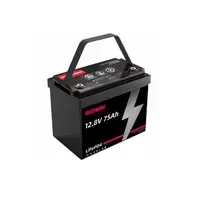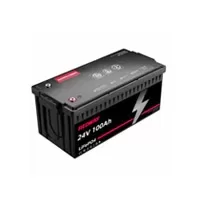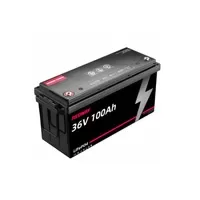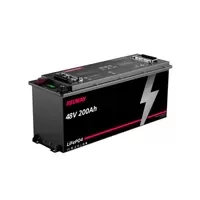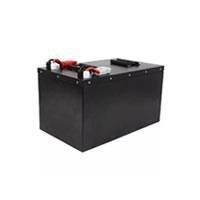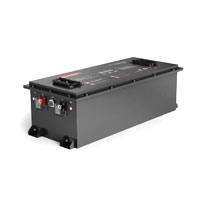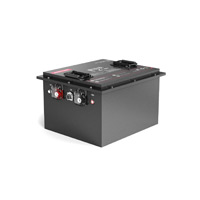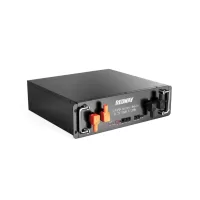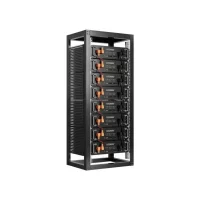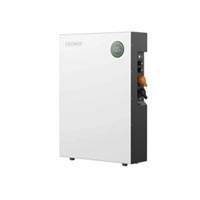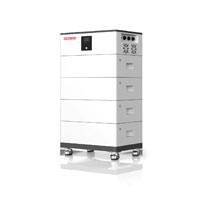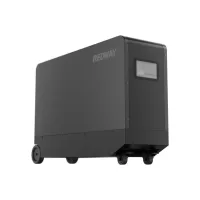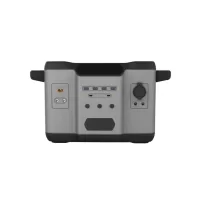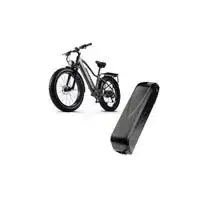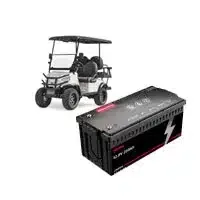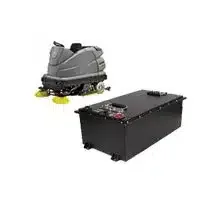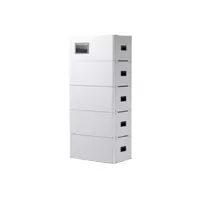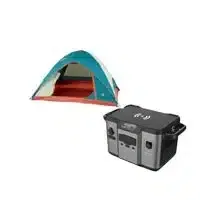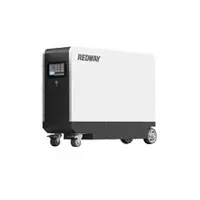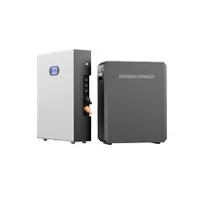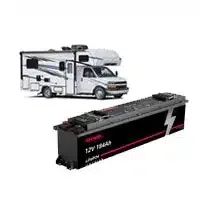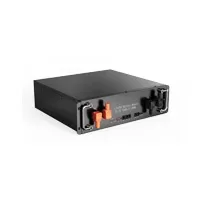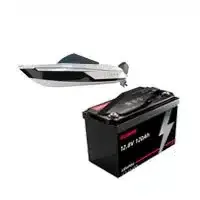
Choosing between two 100Ah lithium batteries or one 200Ah battery depends on factors like space, power needs, cost, and future expansion. Two batteries offer redundancy but may be heavier and costlier, while one simplifies setup but lacks backup.
What are lithium batteries?
Lithium batteries are rechargeable and use lithium ions to store energy, offering efficiency and lightweight solutions for RVs and boats. They boast longer lifespan, up to 10 years, with high charge efficiency for faster charging. Enhanced safety features prevent accidents. Lithium batteries stand out for their compact size, weight, efficiency, and safety.
Understanding lithium batteries is important for anyone considering them for their RV or boat. Let’s simplify:
- Efficient Energy Storage: Lithium batteries use lithium ions to store and release energy. This method is more efficient than traditional lead-acid batteries, making them ideal for powering vehicles and vessels.
- Long Lifespan: Unlike lead-acid batteries that last 3-5 years, lithium batteries can endure up to 10 years with proper care. This longevity means fewer replacements, saving money in the long run.
- Fast Charging and Safety: Lithium batteries have high charge/discharge efficiency, allowing for faster charging. They also boast improved safety features, like built-in protection circuits, reducing the risk of accidents.
In summary, lithium batteries offer efficient energy storage, long lifespan, fast charging, and enhanced safety features, making them a top choice for RVs and boats.
The benefits of using lithium batteries for RVs and boats
Lithium batteries are popular for RVs and boats due to their lightweight design, long lifespan, and consistent power output. They charge faster and offer high energy density, storing more power in a smaller space. These benefits make them ideal for reliable and efficient power supply on the road or water.
When it comes to powering RVs and boats, lithium batteries are gaining popularity. Let’s break down why:
- Lightweight Design: Lithium batteries are much lighter than traditional ones, making them ideal for vehicles and vessels. This lightweight feature reduces strain on engines and allows for more efficient travel.
- Long Lifespan: These batteries can last up to ten times longer than lead-acid batteries, meaning fewer replacements and more cost savings in the long run.
- Consistent Power Output: Unlike lead-acid batteries, which experience voltage drop-off as they deplete, lithium batteries maintain steady voltage until fully discharged. This ensures consistent power throughout their use.
In summary, lithium batteries offer a lightweight, long-lasting, and reliable power supply solution for RVs and boats, making them a popular choice among outdoor enthusiasts.
Understanding battery capacity: Ah vs. Wh
Understanding battery capacity is crucial for RV or boat owners. Ampere-hours (Ah) measure how long a battery can deliver charge, while Watt-hours (Wh) indicate total energy storage. For instance, a 100Ah battery at 12V equals 1200Wh. Knowing both helps predict battery life and compare options, such as choosing between two 100Ah or one 200Ah battery for specific needs.
Understanding battery capacity is essential for RV and boat owners. Let’s break it down:
- Ampere-hours (Ah): Ah measures how long a battery can deliver charge. For instance, a 100Ah battery can provide 1 amp of power for 100 hours.
- Watt-hours (Wh): Wh indicates the total energy storage capacity of a battery, considering both voltage and current. For example, a 100Ah battery at 12V equals 1200Wh.
- Why it matters: Knowing both Ah and Wh helps predict battery life and compare options. It aids in decisions like choosing between two 100Ah or one 200Ah battery for specific needs.
Understanding these metrics empowers RV and boat owners to make informed decisions about their battery choices, ensuring they meet their energy requirements effectively.
Pros and cons of 2 100Ah batteries
Consider using two 100Ah batteries instead of one 200Ah for your RV or boat. Two batteries offer redundancy and flexibility, ensuring continuous power supply. However, they require more space, weight, and maintenance. Assess your needs and system capabilities to decide the best option.
- Choosing Batteries for Your RV or Boat: When deciding on the right battery setup for your RV or boat, you may consider using either two 100Ah batteries or a single 200Ah battery. Both options have their pros and cons.
- Pros of Two 100Ah Batteries:
- Redundancy: With two batteries, you have a backup in case one fails, ensuring uninterrupted power supply during trips.
- Flexibility: You can distribute the load between the batteries, allocating specific tasks to each, providing versatility in power management.
- Cons of Two 100Ah Batteries:
- Space and Weight: Having two batteries means more space and weight requirements, which might be a concern for smaller RVs or boats.
- Maintenance: Monitoring and balancing the charge of two batteries can be more complex and require additional attention.
In conclusion, while two 100Ah batteries offer redundancy and flexibility, they come with space, weight, and maintenance considerations. Assess your specific needs and system capabilities to make the best choice for your RV or boat’s power supply.
Pros and cons of 1 200Ah battery
When choosing between one 200Ah battery and two 100Ah batteries for RVs or boats, consider the benefits of larger capacity and simplified setup with the 200Ah option. However, note the drawbacks, such as the absence of backup and challenges in transportation. Assess your energy requirements, space availability, and maintenance ease to make the best decision.
Choosing between one 200Ah battery and two 100Ah batteries for RVs or boats involves weighing the benefits and drawbacks of each option. Let’s break it down:
- Advantages of a 200Ah Battery:
- Larger capacity means more energy storage and longer-lasting power.
- Simplified setup with fewer connections and cables, making installation easier and less time-consuming.
- Considerations:
- Lack of backup option in case of failure or damage to the single battery.
- Challenges in transportation due to the weight and size of a single large lithium battery.
- Making the Decision:
- Assess energy requirements, available space, and maintenance ease to determine the best fit for your needs.
In summary, while a 200Ah battery offers greater capacity and simplified setup, it may pose challenges in backup power and transportation. Evaluate your specific requirements to make an informed decision.
Factors to consider when choosing between the two options
When deciding between two 100Ah batteries or one 200Ah battery for your RV or boat, consider factors like space, power needs, cost, and future expansion. Two batteries offer backup and flexibility but may be heavier and costlier. A single battery simplifies setup but lacks backup. Choose based on available space, usage, budget, and potential future needs.

Deciding between two 100Ah batteries or one 200Ah battery for your RV or boat requires considering various factors. Let’s break it down:
- Space: Assess the available space in your vehicle or vessel. Smaller batteries might fit better in tight spaces compared to a single larger one.
- Power Needs: Consider your power requirements. If you need a lot of power for long trips, a single larger battery might be more suitable. But if your needs are minimal, two smaller batteries could suffice.
- Cost: Compare the costs of two separate batteries versus one larger battery. While two batteries might offer redundancy and flexibility, they could also be more expensive.
- Weight Distribution: Think about weight distribution and balance. Two smaller batteries may allow for more even weight distribution compared to a single larger battery.
- Future Expansion: Consider potential future energy requirements. If you plan to expand your setup later, having extra capacity with two smaller batteries could be beneficial.
In the end, weigh these factors to make the best decision for your specific needs and circumstances.
Conclusion: Which option is better for your specific needs?
Choosing between two 100Ah lithium batteries or one 200Ah lithium battery depends on individual needs. If space is limited and redundancy is desired, two batteries offer flexibility. However, for simplicity and fewer maintenance tasks, a single larger battery may be preferable. Consider power requirements, cost, and installation ease to make the best decision for your situation.


